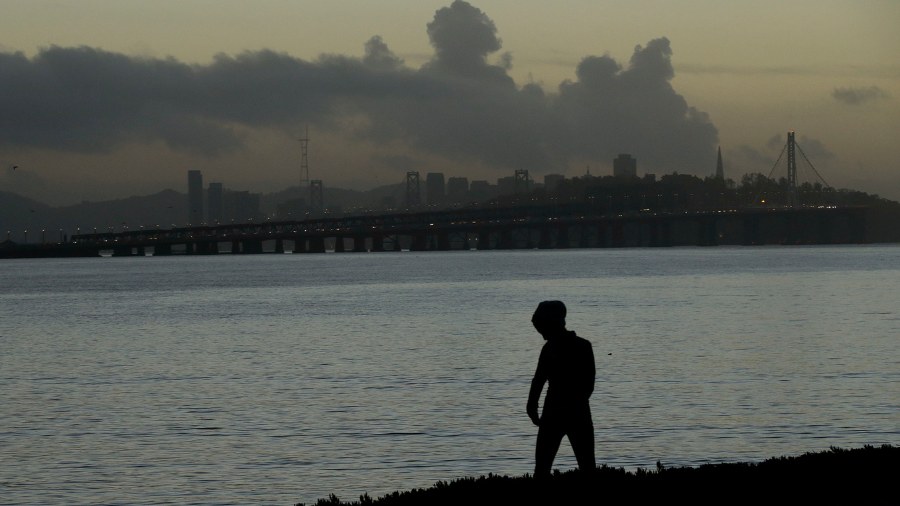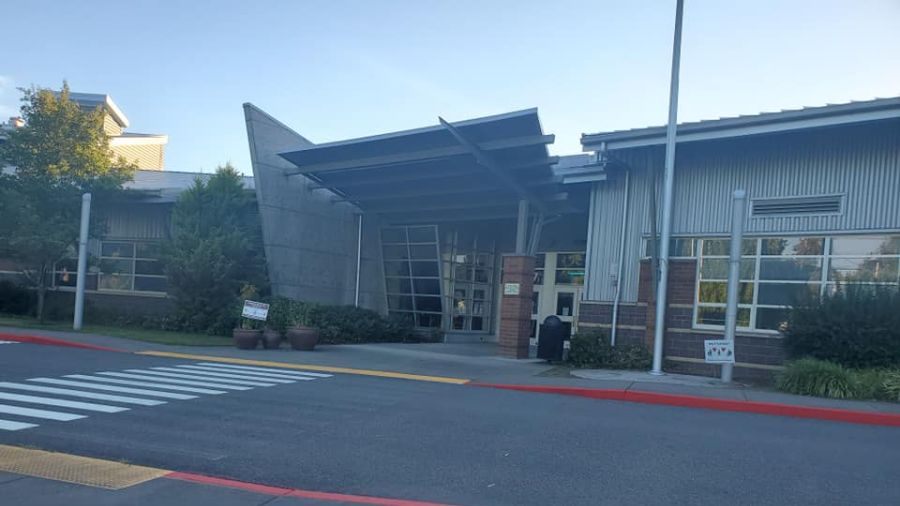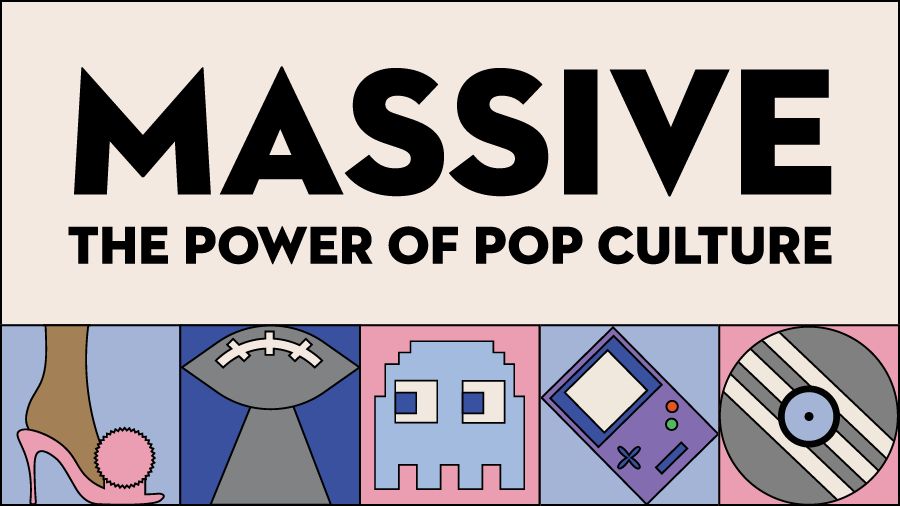Cliff Mass: El Nino is to blame for lower snowpack, not climate change
Jun 4, 2024, 5:50 AM | Updated: 6:16 am

A woman walks along a path as clouds hang over the San Francisco-Oakland Bay Bridge in Emeryville, California, in January of 2016. El Nino storms lined up in the Pacific, promising to drench parts of the West for more than two weeks. (Photo: Jeff Chiu, AP)
(Photo: Jeff Chiu, AP)
The Seattle Times’ Climate Lab initiative published a story online early Monday with the headline that says, “WA drought has already led some to shut off water to farmers.”
The story begins by stating much of the state is “either abnormally dry or suffering from a moderate drought.”
Washington’s dismal snowpack over the winter is turning into a dismal water supply for the growing season as farmers already are struggling to irrigate their crops.
Summer is still weeks away and almost two thirds of the state is either abnormally dry or suffering from a moderate drought. The state declared a drought emergency in mid-April and in late May officials with the Roza Irrigation District — covering 72,000 acres and some of Washington’s most fertile ground — shut off its spigots in an attempt to conserve water for the dry months ahead.
During an appearance on “The Jason Rantz Show” on KTTH Monday, meteorologist and University of Washington (UW) atmospheric sciences Prof. Cliff Mass wasted no time in taking on the outlet’s writing on climate change and its impacts.
“Well, this is the Seattle Times Climate Lab, and they tend to hype and exaggerate the effects of climate change. So, I’ve been very disappointed in the writing,” Mass said.
Mass went on to explain a strong El Nino is what is to blame for a lower snowpack this year as opposed to climate change.
“The snowpack was less this year than normal. Well, we know why that is. There was a strong El Nino which they generally don’t mention. But this time they mentioned the very end,” Mass said. “So it’s not due to climate change or global warming that we didn’t have so much snowpack. It’s because of a natural phenomenon called El Nino when the tropical Pacific becomes warmer than normal.”
From Ted Buehner: Summer weather is just around the corner
Mass also took issue with the Times’ explanation that the reason why officials shut off the water spigots to the Roza Irrigation District is because it was an attempt to conserve water for the dry months ahead.
“Some of the the water rights people had a gap in their water. So, they, basically, shut things down for a week. Now what (the Times) didn’t mention is the reason they shut it down for a week and that is because it has been so cool and wet.
“And so instead of running water down these canals, when the farmers didn’t need it, it made a lot of sense not to put the water in the canals now when they didn’t need it and save it for later in the summer. So it’s actually the cool, wet weather is what caused the drop in water in these canals. And it wasn’t due to climate change,” Mass explained to “The Jason Rantz Show” on KTTH.
When the word ‘drought’ should be used
Host Jason Rantz went on to say that any sort of drought impacts the agriculture industry and that’s serious as it has economic impacts. So, he asked Mass what the basic takeaway should be for people who are concerned about this being a statewide issue.
“If you go to the (USDA) analysis of where the crops are right now, it’s extremely favorable,” Mass said. “We may be a little bit drier than normal, a little less snowpack, but the cold, there’s some drought with a ‘big D’ and that’s kind of deceptive. But people think the word drought should only be used when there’s a serious negative impact on this lack of water or snowpack. But that’s not the case this year.”
To hear more from Cliff Mass, including his thoughts about the “strong winter storm during the summer time” the Puget Sound region saw and what he thinks the UW campus in Seattle is like now that the pro-Palestinian encampment has been cleared, head here to listen or click on the player below.
More from Cliff Mass: Winter-like storm in June was ‘quite a doozy’ for Washington
Steve Coogan is the lead editor of MyNorthwest. You can read more of his stories here. Follow Steve on X, or email him here.















